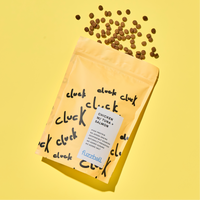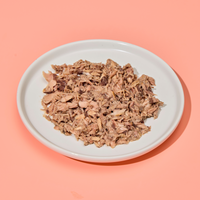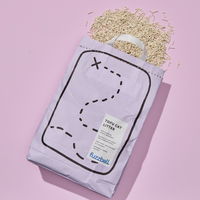The Link Between Cat Food Quality and Behaviour

Cats may not be able to tell us how they feel about dinner in words, but their behaviour often gives away more than we realise. From playful zoomies around the living room to quiet moments of affection, a cat’s actions are closely tied to how satisfied and nourished they feel. While environment, routine, and health all play roles in shaping their personalities, diet is one of the most powerful influences. Feeding a cat high-quality food not only supports their physical health but also plays a part in how they act and interact with the people around them.
Why Food Quality Affects Behaviour
Cats are obligate carnivores, meaning their bodies are designed to rely on meat for energy, strength, and overall well-being. When their diet is built on high-quality protein and natural ingredients, their energy levels, moods, and routines tend to stabilise.
On the other hand, food with fillers, grains, added sugars, or artificial flavours often leaves them unsatisfied, which can lead to restlessness, irritability, or behavioural changes. A poor-quality diet may not provide the nutrients a cat needs to stay playful, calm, and content. Many behavioural issues can be traced back to what is inside the food bowl.
Energy and Playfulness
One of the most noticeable links between food and behaviour is energy. Cats thrive on protein, which provides them with the fuel to run, climb, hunt, and play. Meals rich in chicken or tuna supply steady energy that allows cats to display their natural instincts in healthy ways.
Cats fed on poor-quality food with little meat content may either lack the energy to play or become restless because their bodies are searching for proper nourishment. A satisfied, protein-fed cat is far more likely to chase a toy, explore their environment, and return to a calm state when they have had enough.
Mood and Calmness
Just as humans can become grumpy when hungry, cats can act out when their food fails to meet their needs. Quality ingredients like salmon, which is rich in omega-3, not only nourish the body but also help keep moods balanced. Cats that feel full and properly nourished are less likely to cry for food at odd hours, beg at the table, or show signs of stress. Their behaviour becomes steadier because their nutritional needs are being met in a way that satisfies them. A calm and content cat is one that spends more time purring, relaxing, and bonding with their humans, instead of becoming agitated or destructive.
Routine and Security
Cats thrive on routine, and mealtimes are an important part of this. A consistent diet of high-quality food provides them with a sense of stability and comfort. When food is changed too often, or when it is low in quality, it can create unnecessary stress. This stress may show up in unwanted behaviours such as avoiding the litter box, scratching furniture or hiding. Feeding cats real, natural food reassures them that their basic needs will always be met, which encourages a calmer, more predictable daily routine.

Behavioural Signals That Point to Poor Nutrition
Behavioural changes are often the first sign that a cat’s food may not be serving them well.
|
Behavioural Change |
Possible Dietary Cause |
What It Suggests |
|
Restlessness or Hyperactivity |
Food high in fillers, sugars or artificial additives instead of protein-rich meat |
The diet is not satisfying natural carnivore needs, leading to bursts of unfocused energy and frustration |
|
Lethargy or Lack of Playfulness |
Low-quality protein or insufficient calories |
The cat is not receiving the nutrients needed for steady energy, resulting in reduced interest in play or exploration |
|
Excessive Meowing, Begging or Food Stealing |
Meals lacking in satiety due to low meat content or poor protein quality |
The cat remains hungry even after eating, pushing them to demand more food or scavenge |
|
Aggression or Irritability |
Nutritional imbalance, inconsistent feeding, or low levels of essential amino acids |
Mood swings and short temper may arise when the diet fails to meet basic nutritional or routine needs |
|
Over-Grooming or Stress Behaviours |
Deficiencies in calming nutrients, such as Omega-3s, or diets that do not support stable digestion |
Anxiety or stress-related habits often improve with a nutrient-rich, calming diet |
Choosing Food That Supports Good Behaviour
Selecting the right food for your cat involves looking beyond packaging claims and paying attention to ingredients. Real meat or fish should always appear at the top of the list, showing that the food is built on quality protein rather than fillers. Artificial colours, flavours and added sugars offer no benefit and may cause behavioural ups and downs.
Cats also enjoy variety, so rotating between flavours like chicken, tuna and salmon, beef and other proteins can keep mealtimes exciting while meeting their nutritional needs. A consistent, high-quality diet tailored to your cat’s age and lifestyle helps create the foundation for positive, predictable behaviour.

Why High-Quality Food Leads to Better Behaviour
Feeding cats nutritious, high-quality food not only supports their health but also shapes how they act and interact at home.
- Cats fed on protein-rich, natural food have more energy for play and exploration, allowing them to display their natural instincts in healthy ways.
- Balanced meals keep moods steady, leading to calmer behaviour and more consistent companionship.
- A reliable diet helps cats adapt better to daily routines, giving them a sense of security and stability.
- High-quality ingredients reduce stress, which means fewer unwanted behaviours such as over-grooming, hiding or excessive meowing.
- When cats feel nourished and content, they form stronger bonds with their owners, creating a happier home environment.






